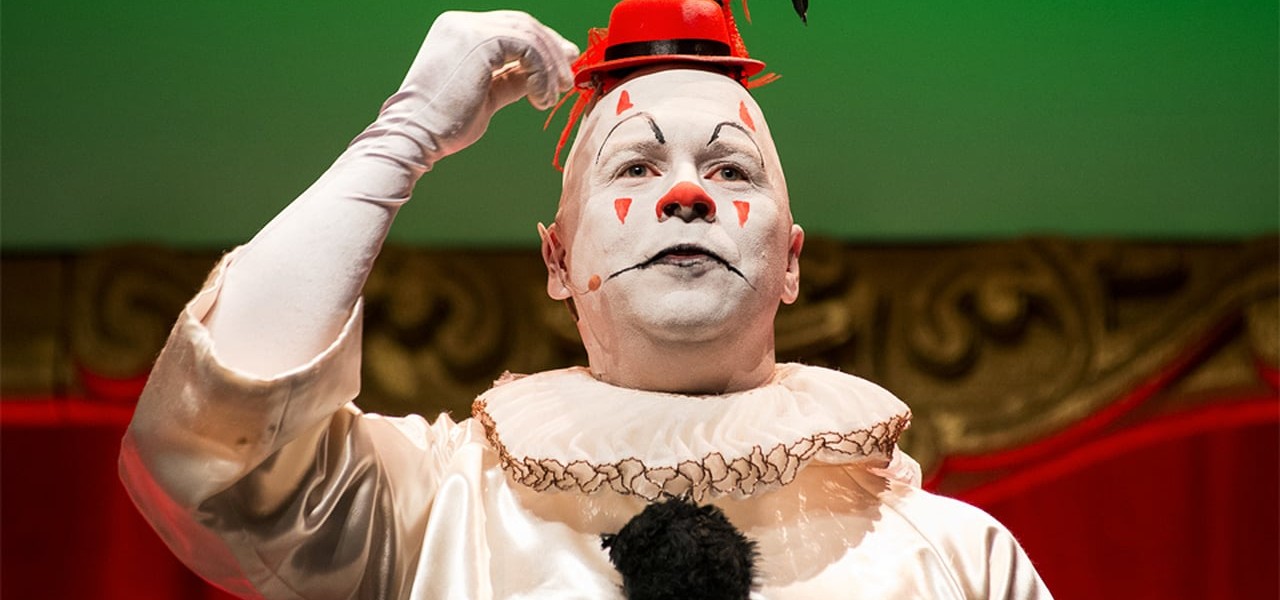YooHoo — anybody out there?
There’s a famous American clown named Moshe Cohen, who goes by the stage name Mr. YooHoo. In his heyday he travelled widely, plying his shtick before children and adults alike. One time Mr. YooHoo was performing before a big crowd in Chiapas, Mexico. The show seemed to be going well. At the end of it, he announced. “And now for my last trick, I’m going to make you all disappear.” And with that, he took off his glasses.
The gag had always got a laugh. But not this time. Crickets. What was going on?
Mr. YooHoo put his glasses back on and looked out at the audience. And then he understood. No one was wearing glasses. Not a single person. They were too poor to wear glasses. So they didn’t get the joke.
The acting teacher Bernie Glassman tells that story in his book The Dude and the Zen Master (Glassman had himself been a clown, and Mr. YooHoo was his mentor), and when I read it I thought: teachable moment. The lesson is, I guess, know your audience. Make sure you’re not working blue for a Christian crowd, not leaning on pop-culture references for a group of seniors, and so on.
But it occurs to me there’s a deeper way to think about the moral of this story – not as “market research,” but as an exercise in empathy. Think of the people sitting out there. Better yet, actually go out there and sit where they’re sitting. Who are they? What private battles are they fighting? Answering that will help you answer this: What can you give them?
*
I recently exchanged emails with Derek Sivers, an entrepreneur and writer who now earns his beans on the speaking circuit. He often tells the story of how he overcame his stage fright with one simple intervention.
Derek had worked for a dozen years as a circus emcee (that’s him in the picture). In the beginning, buy ambien online with mastercard he’d wanted to put his own stamp on the role. He tried to be all hip and ironic and Letterman-esque. It never quite clicked. He amused himself, but he never really connected with the audience. This wasn’t the Jim Rose Circus Sideshow — this was a traditional circus in the Midwest.
So one day he tried something different. He decided to be the very thing he was hired to be, a circus barker — nothing less and a little bit more. He played that role and dialed it up. People loved it.
When he returned backstage the owner of the circus took him by the shoulders. “There you go!” she said. “You’ve figured it out. That’s why people go to the circus. You gave them what they wanted.”
And that’s when it clicked for Derek. He thought, ‘It’s not about me.’ What the audience wants is to receive something of value that they can take away and maybe share with their family over dinner tonight. They want their pain salved, just for a few moments, with a pleasant distraction. Memo to self, Derek thought: Just give them what they were hoping to get when they showed up here today. But to do that means at least trying to grok, at a fairly deep level, who these people are.
That’s the step that Mr. YooHoo missed. For all his experience, he failed to understand that he couldn’t just deploy a joke that worked somewhere else and have it work here, in front of these people whose needs and whose circumstances he hadn’t really considered.
Derek’s stage fright vanished the moment he realized what his actual job was: “My role is to just be kind of invisible and deliver, like a great butler.”
Mr. YooHoo had it backwards. The trick isn’t to make your audience disappear. It’s to make yourself disappear.
